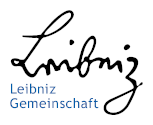- Das Institut
- Forschung
- Diktaturen im 20. Jahrhundert
- Demokratien und ihr historisches Selbstverständnis
- Transformationen in der neuesten Zeitgeschichte
- Internationale und transnationale Beziehungen
- Editionen
- Dissertationsprojekte
- Abgeschlossene Projekte
- Dokumentation Obersalzberg
- Zentrum für Holocaust-Studien
- Berliner Kolleg Kalter Krieg
- Publikationen
- Vierteljahrshefte
- Archiv
- Bibliothek
- Zentrum für Holocaust-Studien
- Aktuelles
- Termine
- Presse
- Neuerscheinungen
- Aus dem Institut
- Themen
- Spielfilm im Nationalsozialismus
- Die Geschichte des Bundesministeriums der Finanzen (1945-1990)
- Reordering Yugoslavia, Rethinking Europe
- 75 Jahre Institut für Zeitgeschichte
- München 1972
- Confronting Decline
- Digitale Zeitgeschichte
- Zeitgeschichte Open
- Das Deutsche Verkehrswesen
- Bundeskanzleramt
- Demokratische Kultur und NS-Vergangenheit
- Geschichte der Treuhandanstalt
- Akten zur Auswärtigen Politik
- Dokumentation Obersalzberg
- Edition "Mein Kampf"
- "Man hört, man spricht"
- Newsletter
Cultural Genocide and Nazi Germany: Toward a Global Historical Approach
This presentation offers an overview of Rachel O’Sullivan’s ongoing research project, which explores the concept of cultural genocide during the Second World War in annexed Poland and the Protectorate of Bohemia and Moravia. While physical annihilation remains a central component to many discussions on the Holocaust and genocide, this project investigates how the cultural life of population groups living under German occupation was also systematically targeted. Drawing on discussions in International Law, Genocide Studies and Colonial History, the project examines the intersections between cultural destruction as it related to the Holocaust, as well as broader National Socialist policies of Germanisation. In doing so, it aims to both offer an in-depth delineation of Nazi Germany’s cultural genocide and place this within a transnational and transhistorical framework.
By examining National Socialist policies alongside survivor testimony, the project aims to trace how cultural genocide operated and was experienced. Particular attention is given to the conceptual and legal marginalisation of cultural genocide itself and to the potential insights its application might offer for rethinking the links between persecution, violence, assimilation and erasure more broadly.
This work-in-progress also speaks to current memory culture debates in Germany, particularly surrounding the legacy of colonialism, the politics of national heritage and the destruction of moveable and immovable cultural heritage in contemporary conflicts. The presentation will outline the project’s developing questions, its relevance to ongoing debates within German memory culture and its methodological foundations.
Die Veranstaltung ist eine Kooperation mit dem Lehrstuhl für Geschichte Ost- und Südosteuropas.
ORT
Ludwig-Maximilians-Universität München
Historicum, Raum K 001
Amalienstraße 52
80799 München
ANMELDUNG
Eine Anmeldung ist bis zum 02.06.2025 per Email erforderlich: zfhs[at]ifz-muenchen.de




